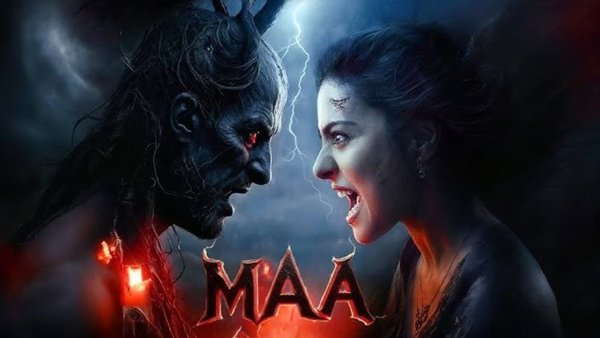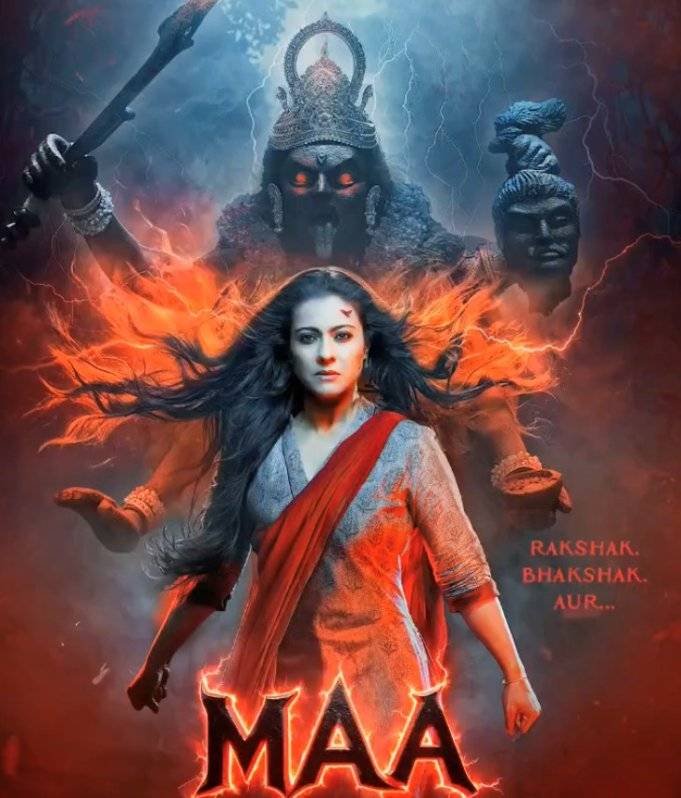Table Of Content
- Introduction: Cinema To The Rescue, Again
- The Groundbreaking Premise Nobody Asked For
- Kajol’s Heroic Role As Captain Obvious
- A Mother’s Rage… In Case You Needed The Reminder
- Subtle As A Hammer: Maa’s Social Message
- Did Bollywood Just Discover Morality?
- Extended Analysis: Why Maa Thinks We’re All Morons
- Audience Reactions: Shocked, Confused, Slightly Amused
- Fake Street Interviews: What People Are Pretending To Say
- Controversy: Do We Really Need This “Lesson”?
- Kajol’s Career Evolution: From Romance To Redundancy
- Imagining The Sequel: Obvious Morals Part Two
- Bollywood’s Love Affair With Heavy-Handed Social Drama
- Final Thoughts: Thank You Maa, We’ll Remember Not To Kill Babies
For centuries, humanity has survived with the help of laws, culture, religion, education, and maybe just plain common sense. But apparently, all of that wasn’t enough. Enter Bollywood, riding in on a white horse, armed with melodrama, slow-motion tears, and background violins. Yes, ladies and gentlemen, Maa, starring Kajol, is here to save us from ourselves.
Just in case you were walking around wondering if it’s socially acceptable to toss a baby out the window — worry no more. Kajol’s new movie has your back.
The Groundbreaking Premise Nobody Asked For
Maa revolves around the age-old, utterly neglected moral question: “Is killing babies bad?” Revolutionary, isn’t it? While the rest of the world wastes time with petty films about climate change, corruption, or women’s rights, Bollywood dares to venture into unexplored philosophical territory.
It’s like if someone made a three-hour film explaining why setting your house on fire isn’t recommended. Bold. Brave. Unnecessary.

Kajol’s Heroic Role As Captain Obvious
Kajol, known for her intensity, steps into the role of a mother who apparently needs to educate the entire audience on the basics of morality. Every time she screams in agony or collapses in grief, you can almost hear her inner voice saying: “Look at me, society! Learn your lessons! Babies are precious!”
It’s not just a performance; it’s a lecture. If you thought she was good in DDLJ or Kabhi Khushi Kabhie Gham, wait until you see her explain morality in the simplest, most spoon-fed way possible.
A Mother’s Rage… In Case You Needed The Reminder
Nothing says “educational cinema” like long sequences of a mother crying. Tears flow like rivers, violins play like there’s no tomorrow, and Kajol’s close-ups scream one universal truth: babies matter. In case the audience is slow to catch on, don’t worry — the dialogue repeats the message. Then repeats it again. And again. Until you’re convinced that the director thinks you were born without a functioning conscience.
Subtle As A Hammer: Maa’s Social Message
If you were expecting nuance, you’ve walked into the wrong theater. Maa doesn’t whisper, it shouts. It doesn’t suggest, it commands. It doesn’t guide, it drills the lesson into your head with the subtlety of a hammer smashing glass.
The script practically screams: “Don’t kill babies! In case you didn’t know!” The background score swells, the dialogue echoes in slow motion, and the villains look so cartoonishly evil that you almost expect them to twirl their mustaches while tossing infants off cliffs.
Did Bollywood Just Discover Morality?
The film begs the question: Has Bollywood just discovered morality in 2025? What’s next?
- A movie titled Water: Don’t Forget To Drink It starring Alia Bhatt?
- Or Gravity: In case you didn’t know, falling hurts with Ranveer Singh?
- Perhaps Oxygen: Why Breathing Is Non-Negotiable, starring Salman Khan punching air molecules into submission?
If this is the new formula, Bollywood might have cracked the code to creating endless “educational” franchises.
Extended Analysis: Why Maa Thinks We’re All Morons
Here’s the underlying assumption of Maa: you, dear viewer, are too clueless to figure out basic right from wrong. You need Kajol to hold your hand through this moral maze.
It’s the cinematic equivalent of a teacher making you copy “I will not eat glue” 100 times on the blackboard. The filmmakers seem to believe that society is just one bad day away from collectively deciding that baby-killing is okay — unless, of course, Kajol stops us.
Audience Reactions: Shocked, Confused, Slightly Amused
Reactions in theaters have been mixed. Some viewers cried, some gasped, while others sat with blank stares that basically said: “Wait, people needed a film for this?”
One teenager allegedly whispered to his friend: “Bro, I thought this was about climate change. Did I just sit through a two-hour PSA on not killing kids?” Another uncle was overheard saying: “Good movie, but I wish they had explained whether jaywalking is also wrong.”
Fake Street Interviews: What People Are Pretending To Say
To extend the sarcasm, let’s imagine some “vox pops”:
- Ramesh, 42: “Thank God for this movie. Before Maa, I wasn’t sure if murdering babies was socially frowned upon. Now I know better.”
- Neha, 19: “Kajol crying taught me more than my 12 years of schooling ever did.”
- Aunty at the bus stop: “I hope the sequel explains why stealing tiffin boxes is wrong. My neighbor’s son needs that lesson.”
Controversy: Do We Really Need This “Lesson”?
Naturally, critics are divided. Some are applauding Kajol for tackling crimes against children — a serious issue. But many are asking: did we really need this message packaged like a kindergarten moral science lecture?
There’s a thin line between raising awareness and insulting the audience’s intelligence. Maa dances on that line like a Bollywood item number, unapologetically extra.
Kajol’s Career Evolution: From Romance To Redundancy
Kajol has had a career filled with powerful performances, but Maa feels like her stepping into the role of “Bollywood’s Chief Morality Officer.” Once she ran through mustard fields with Shah Rukh Khan, now she runs through fields of obvious truths with heavy violins following her every move.
This isn’t character evolution — it’s public service announcement cosplay.

Imagining The Sequel: Obvious Morals Part Two
- Maa 2: Don’t Push Old People Down The Stairs
- Maa 3: Driving Blindfolded Is Dangerous, FYI
- Maa 4: Electricity Can Shock You, Please Be Careful
- Maa 5: Homework Is Important, Kids
Each would come with intense crying, a 10-minute moral lecture, and Kajol glaring into the camera like she’s disappointed in your life choices.
Bollywood’s Love Affair With Heavy-Handed Social Drama
It’s not the first time Bollywood has decided to educate us through cinema. Remember the films about toilets (Toilet: Ek Prem Katha), menstruation (Padman), or plastic pollution? At least those topics had layers of complexity.
Maa strips away all subtlety and says: “Forget complexity, let’s tackle something no one disagrees with.” It’s almost parody — except it’s not. It’s real.
Final Thoughts: Thank You Maa, We’ll Remember Not To Kill Babies
At the end of the day, Maa is both hilarious and horrifying in its execution. Hilarious because it feels like a parody of itself. Horrifying because it treats the audience like preschoolers.
But hey, if cinema is truly about leaving a message, Maa succeeds. Because every single person leaving the theater will now know one undeniable truth: killing babies is bad. Groundbreaking stuff. Thank you, Bollywood. What would we do without your guidance?
Also Read…Red Notice Toppled: KPop Demon Hunters Sets New Netflix Record












Leave a comment